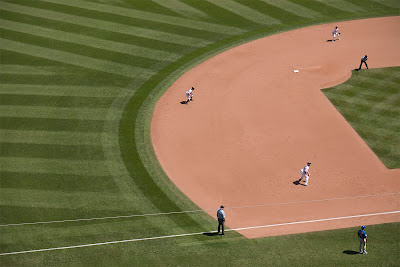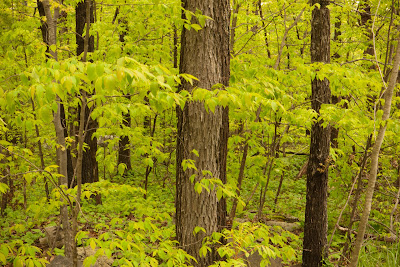There continues to be a lot
of back and forth with regards to the validity of documentary photography
and/or truth as well as the tired, yet never-ending, debate over film v.
digital. Two recent, yet disparate, articles seem to touch upon both subjects.
With the re-release of Nan
Goldin’s, The Ballad of Sexual Dependency
a review in Salon asks ‘Is documentary-style photography dead?’ This
question is based on Goldin’s new afterword where she fears that viewers will
no longer believe her work is real but rather a product of computer
manipulation; her concern that the work will be seen as having been ‘set up’
and therefore not real. She worries that digital manipulation has made any
notion of ‘truth’ in photography obsolete. For Goldin, the idea of a photographic
truth is crucial to her work since it has always been presented as a true
representation of her life at a very specific place and time. As she writes,
‘This work was always about reality, the hard truth, and there was never any
artifice.’
I’m not sure new viewers to Ballad will think the work is set up but
there is definitely more Art Photography being made where constructed imagery
or staged scenarios take place. Many photographers are now uninterested in
traditional kinds of documentation, but rather in creating, re-creating or
constructing photographic scenarios of what appears to be ‘real-life’. So
instead of going out into the world and photographing what takes place in front
of the camera (the photographer as witness), it’s now commonplace to simply
stage photos. Rather than looking at life and photographing it, they’re staging
photos that appear to be life. It’s photography but it feels more like theatre.
And while theoretically it’s addressing the nature and artifice of ‘real’
photography (photography about
photography) and whether any photograph can be ‘true’, it still feels less
interesting to me than what’s actually our there in the world. Work by Jeff
Wall or Gregory Crewdson will never as interesting or provocative as Josef
Koudelka, David Goldblatt, Bruce Davidson or William Klein.
Unfortunately, Nan Goldin’s
work was so successful that it spawned generations (Ballad was first shown in 1979 as a slide show) of imitators;
photographers intent on documenting every moment of their lives but lacking the
skills or the compassion to do so without falling into parody. This style of
self documentation is now commonplace and one needs to look no further than
facebook or other types of social media to see it on a daily basis. I have no
problem with people documenting their own lives (or even posting them online),
I’m just not sure they’re all that interesting, and in the vast majority of
cases, they aint art.
Of course there isn’t any
singular truth; there never has been and it’s absurd to think there ever could
be. But it shouldn’t stop people from experiencing life and trying to make
sense of it with their art. And there surely isn’t anything wrong with trying
to be truthful when we photograph. Be honest, be compassionate, be ethical, be
respectful, be fair and some level of truth will always come through.
Documentary photography
isn’t dead, it just needs people to continue to be involved with the world
outside themselves and to make images that are as compassionate and honest as
possible. And you’ll never convince me that a constructed scenario will ever be
as compelling as the real, unconstructed, sloppy, amazing, messy, fantastic,
tangible, world. As historian John Stilgoe writes, ‘outside lies magic.’
Photographer Norman Jean Roy
laments that the digital photographic process has ruined photography. Now while
he may be overstating his case, he does make some good points. Basically he
feels that too many fashion photographers (and he could easily be saying the
same thing about all other photographers as well) over process their images in
an attempt to ‘perfect’ them, but as a result end up destroying them. He says,
‘Part of a perfect image is that it is imperfect. With digital photography,
it’s very easy to perfect the image. You kill the image when you perfect it.
You basically suck the life out of it. An image, to me, lives when you can look
at it and it’s just slightly off.’
What Roy is getting at is
something that’s been gnawing at me for a while (and to be clear I shoot both
film and digital and like and admire both for the very reason that they are so
different) when I look at a lot of digital photos. They. Just. Seem. Too. Much.
Too sharp and too bright and too shiny and too clear and too saturated and too
colorful and just too too.
It’s not the photographs
themselves, but the way they have been processed. Many times they are
photoshopped to within an inch of their lives, leaving the final image looking
less like a photo and more like an approximation of a photo or even a
photo-illustration. I guess the tendency is to take the technology as far as
one can, even if it strips the image of the flaws (or Roy’s imperfections) that
make it interesting in the first place. Where does one stop when digitally
processing an image? Who knows.
For me photography (and any
kind of art) has first always been about how I respond to it emotionally. How
it effects me on a visceral level has driven my interest in art and artists for
as long as I can remember. Even before I actually ‘knew’ what made me respond
to these things in the first place I knew what I liked. I could feel it in my
gut.
In retrospect, maybe it’s
the flaws that I was responding to all along. Art’s innate imperfections. And
when people remove these flaws in an attempt to perfect a photo, perhaps
they’re removing some of what makes them interesting to begin with.
This isn’t to say that film
is better than digital or vice versa; that argument is silly and unnecessary.
But rather it’s important to think about what it is that makes a photograph
interesting or compelling in the first place.




















